NHS Covid time capsules capture moment in history
Hospital staff at the Royal Bournemouth, Christchurch and Poole hospitals have buried time capsules on each site, providing a lasting memorial for those who worked in the NHS during the pandemic and all the patients they cared for.
The capsules were buried as part of special services across the three hospitals, held in the weeks following the anniversary of the global pandemic being declared and leading up to the anniversary of the first full UK lockdown.
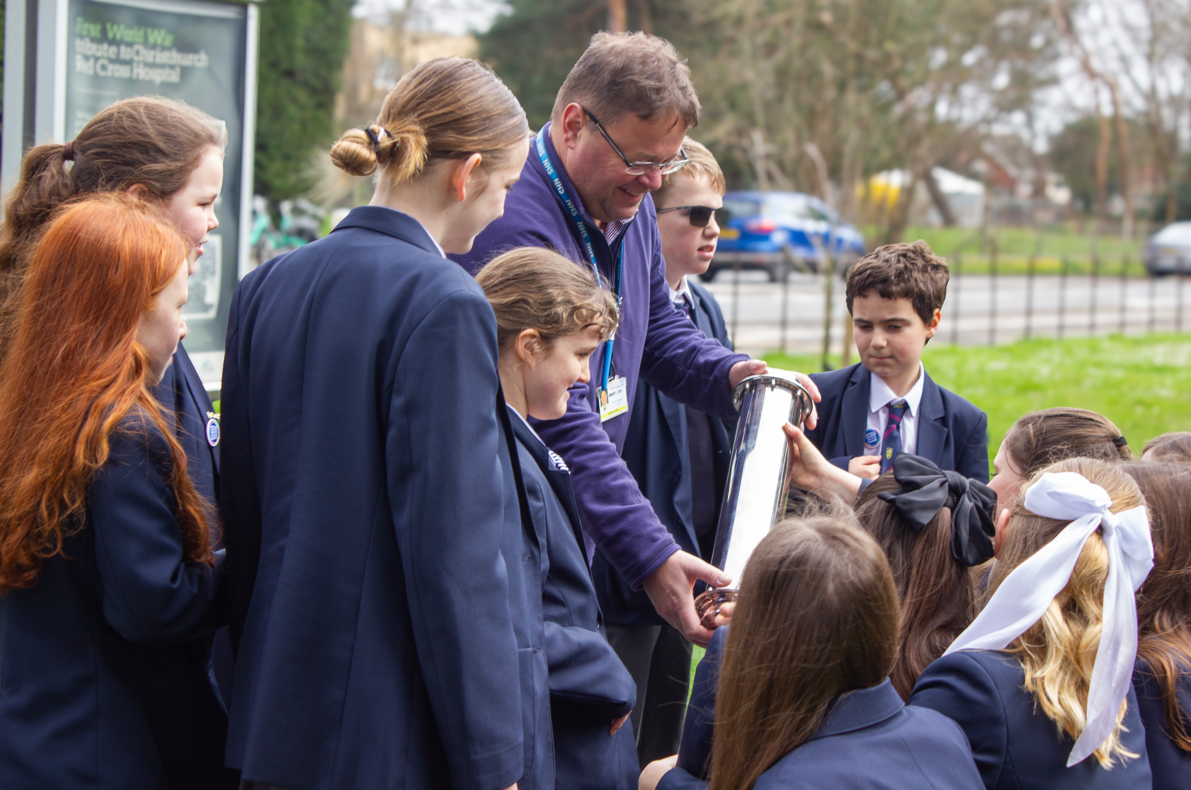
Children from local schools – Park School in Bournemouth, St Peter’s in Southbourne, and St Joseph’s in Poole – performed songs at the three services, which were also attended by Dame Ruth May, chief nursing officer for England, Dr Michele Board, Bournemouth University’s deputy head of department for nursing science, and by the chair of BCP Council, Councillor Lesley Dedman.
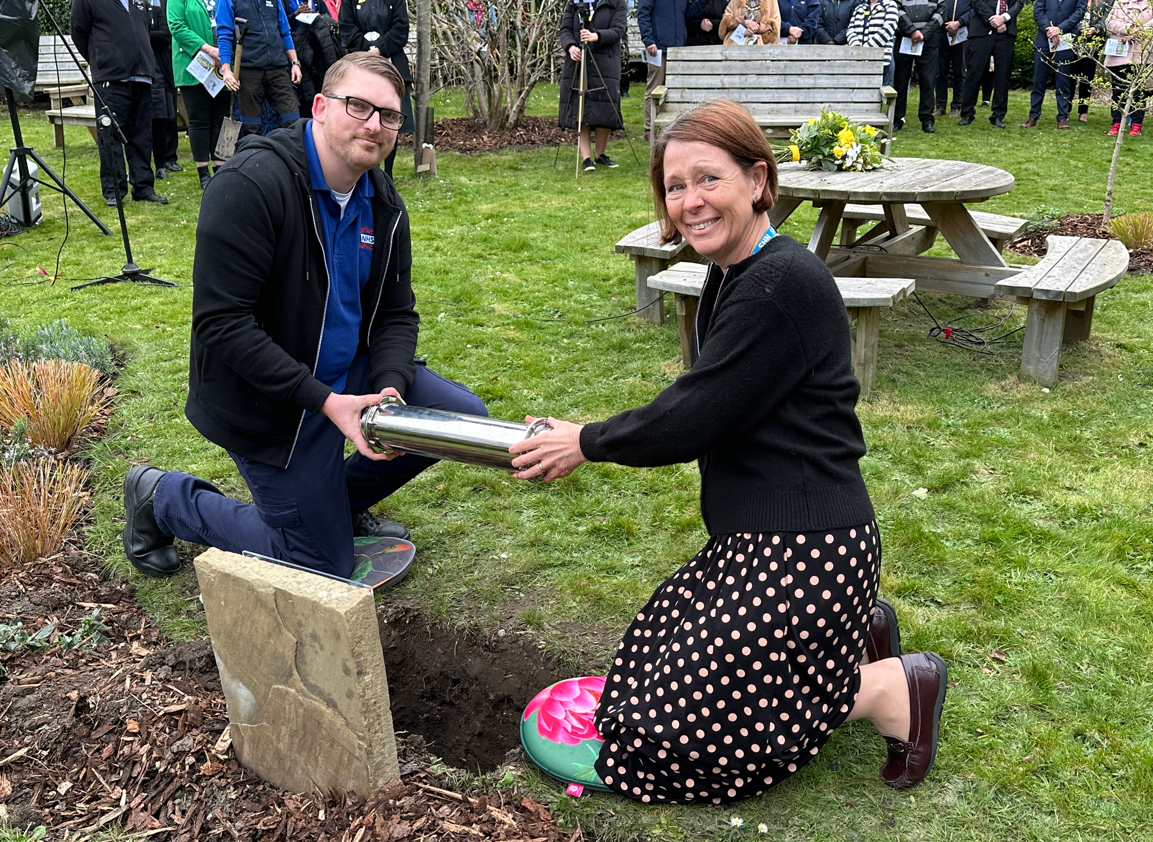
Items in the capsules were chosen by hospital staff, and include a special book of reflections with a number of photos and recollections from those working in the NHS at the time. Other items include personal protective equipment worn at the height of the pandemic, lateral flow testing kits, Covid vaccines, photos and videos produced to support staff and patients, glass rainbows made by one of the hospital’s consultants, and knitted hearts given to the loved ones of those critically ill in intensive care or those at the end of their lives.
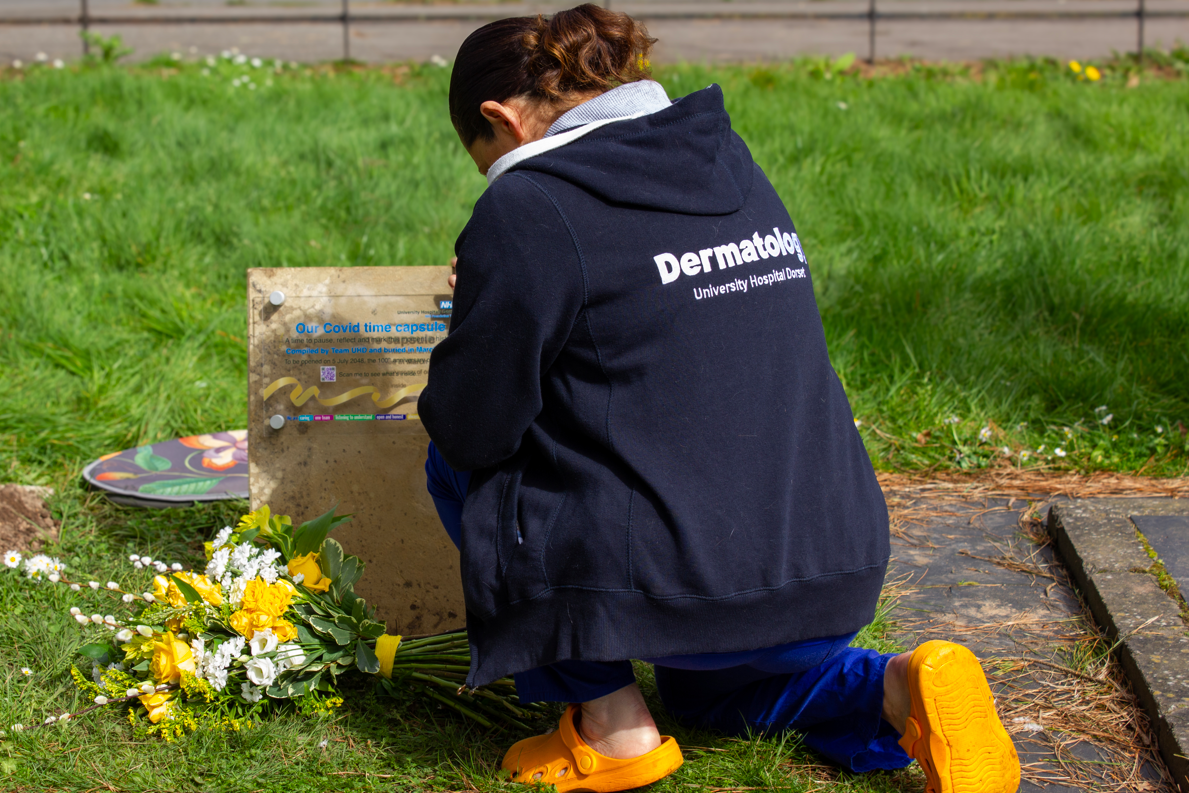
The capsules will be opened again on the 100th anniversary of the NHS – 5 July 2048 – and the capsule sites have been marked by a special memorial stone to create a lasting space for colleagues to spend time reflecting on the pandemic, the way it changed NHS life as we know it, and the very personal impact it had on them and their loved ones.
Dame Ruth said: “It’s important that we continue to reflect on the lasting impact the Covid-19 pandemic has had. I will remain forever proud of our nursing and midwifery workforce, and all our colleagues across the NHS, for the extraordinary contribution they made during this time.”
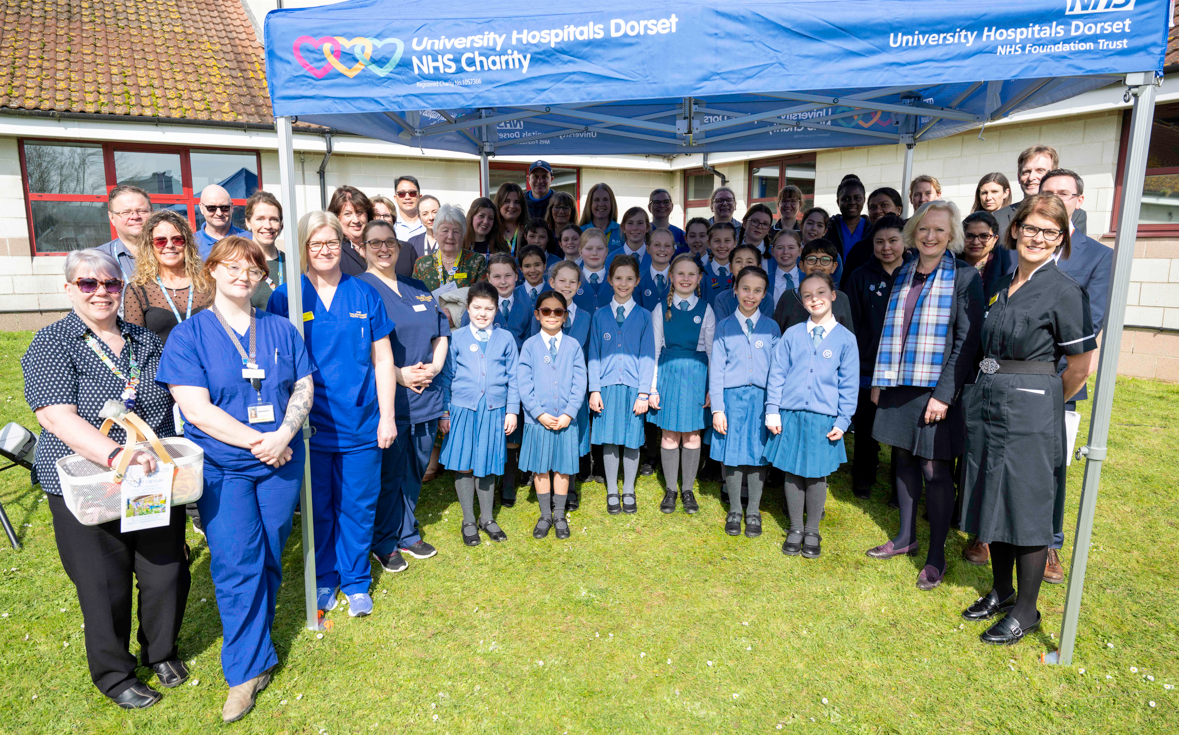
Siobhan Harrington, chief executive of University Hospitals Dorset, added: “Covid was a challenge, a test of our skills, our courage, and our ability to provide care under the most extraordinary circumstances. And it was a challenge we rose to despite every obstacle thrown in our path, and despite the very personal toll it was taking on everybody in our UHD family.
“I hope these capsules and memorial stones give us all a time and space to pause, reflect and mark this moment in history.”
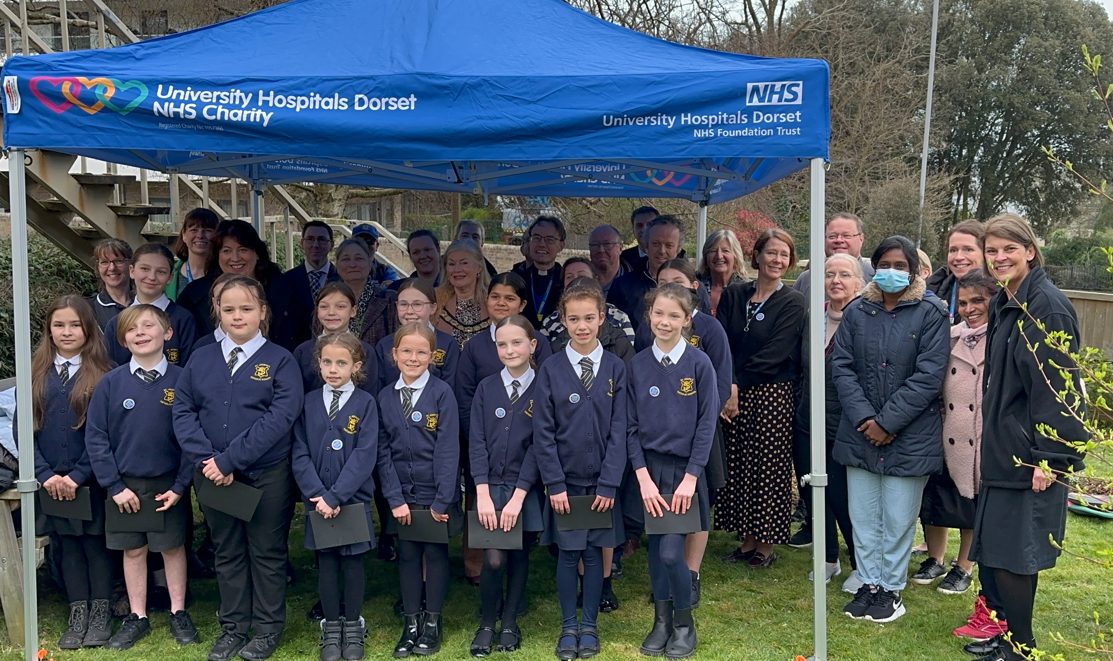
Sue Doheny, NHS England South West chief nursing officer, said: “It was a privilege to be invited to attend the Covid time capsule event. It is four years since the outbreak of the Covid pandemic and these services marked a poignant moment in history. They also provided time to reflect on how the Covid pandemic changed working for the NHS family, and the personal sadness, loss and impact it had on their own lives, those of their families, their loved ones and their community.”
You can find out more about the capsules and what’s inside at www.uhd.nhs.uk/news/covid-19-time-capsule
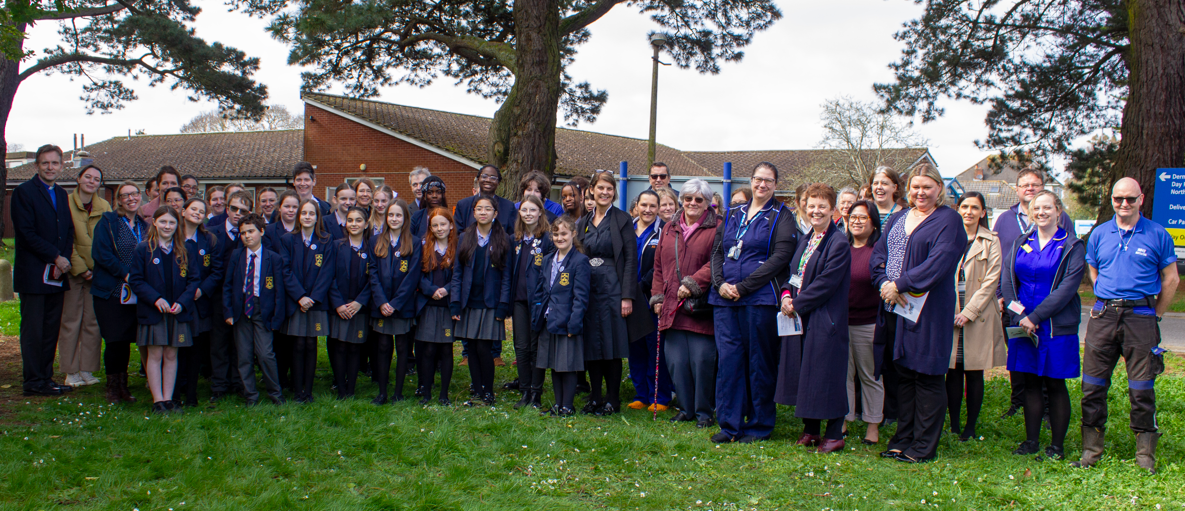
Understanding Health: raising public awareness of the menopause
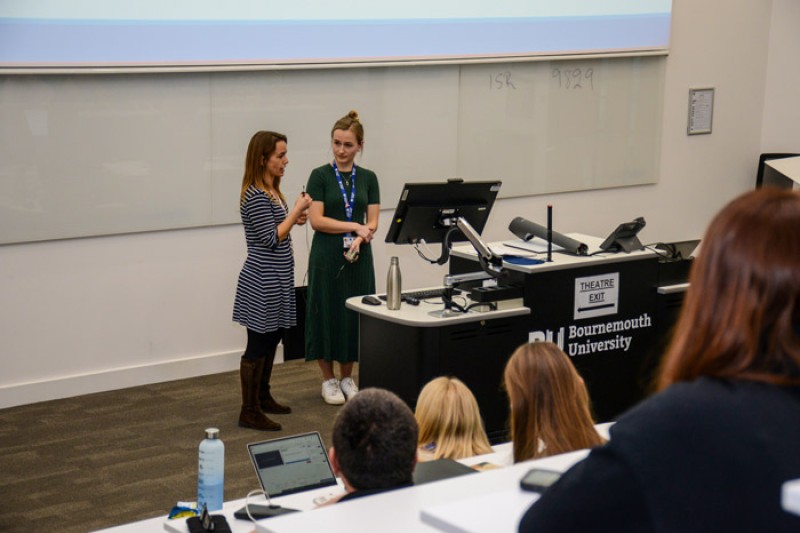
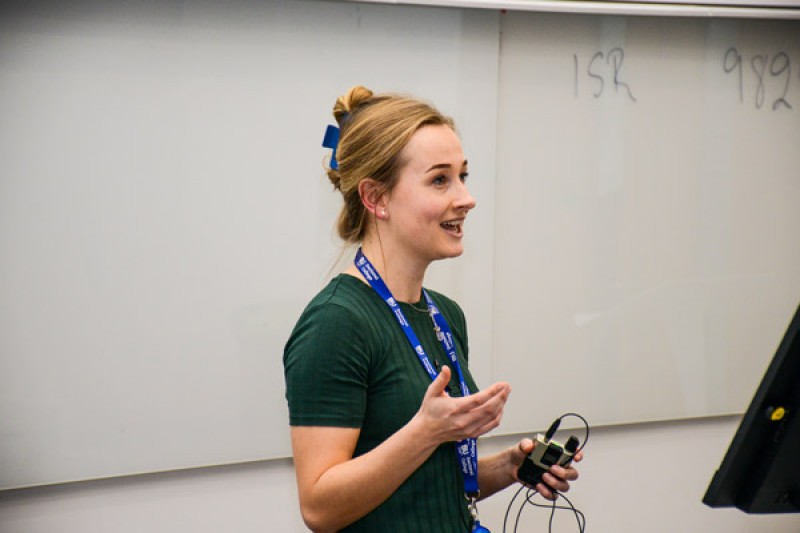
On Wednesday 6 March, expert speakers from University Hospitals Dorset NHS Foundation Trust (UHD) and Bournemouth University (BU) delivered their first event in a series of free Understanding Health talks in 2024, with the first focusing on menopause.
According to NHS England, it is estimated that one-third of the entire UK female population is currently peri- menopausal or menopausal in the UK.
Presenters Rosie Harper, clinical specialist physiotherapist in Pelvic Health at UHD, and Dr Emma Thurston, senior lecturer in Physician Associate Studies at BU and GP with a special interest in women’s sexual and reproductive health, discussed lifestyle advice, tips, information and support to improve the experience of the menopause journey.
Rosie and Emma took questions from an in-house and online audience. One of the questions was around the impact of pelvic floor muscle dysfunction on activity. Rosie spoke about the misconceptions of menopause, for example, that the menopause experience is the same for everyone. She explained how women's experiences differ and spoke of her work to support women in finding the right level of exercise to support them with reasonable adjustments throughout their menopause transition.
Rosie said, “educating women about the common pelvic floor symptoms that can arise around menopause will prepare and support them through this predictable stage in life.”
Emma was asked why there is still a taboo surrounding menopause, to which she highlighted the positive progress that has been made in recent years supported by the Women’s Health Strategy for England. Additionally, she spoke of the impact of social media on changing public perceptions of menopause with women sharing their individual experiences online.
Emma said, “Breaking down health taboos for women across all life stages is vital to ensure women feel empowered to advocate for themselves, know when to seek medical support, and remove any shame or stigma which historically surrounds “women’s issues”. This includes discussing previously “taboo” topics, such as sexual pleasure.”
Through greater education and awareness such as through these ‘Understanding Health Talks’, Bournemouth University in partnership with University Hospitals Dorset hope to share its expertise with a public audience. This event helped improve the public's understanding of the menopause.
Two further Understanding Health talks have been scheduled for later this year with Understanding Concussion in Sports and Practice taking place on 2 May and Understanding Pathology – Health under a Microscope on 4 June.
To view the talk, please click here.
National award for hospital porter
A porter from University Hospitals Dorset (UHD) has been recognised for his services and dedication to the NHS.
Gordon To won in the ‘outstanding contribution to patient experience’ category at the My Porter Awards 2024.
The awards, in association with NHS England, are a national celebration of portering teams and individuals who go above and beyond in their roles, and there was a record-breaking number of nominations this year with other 300 entries.
Colleagues who put Gordon up for nomination described him as “quite simply an outstanding individual, and the best ambassador for portering imaginable.”
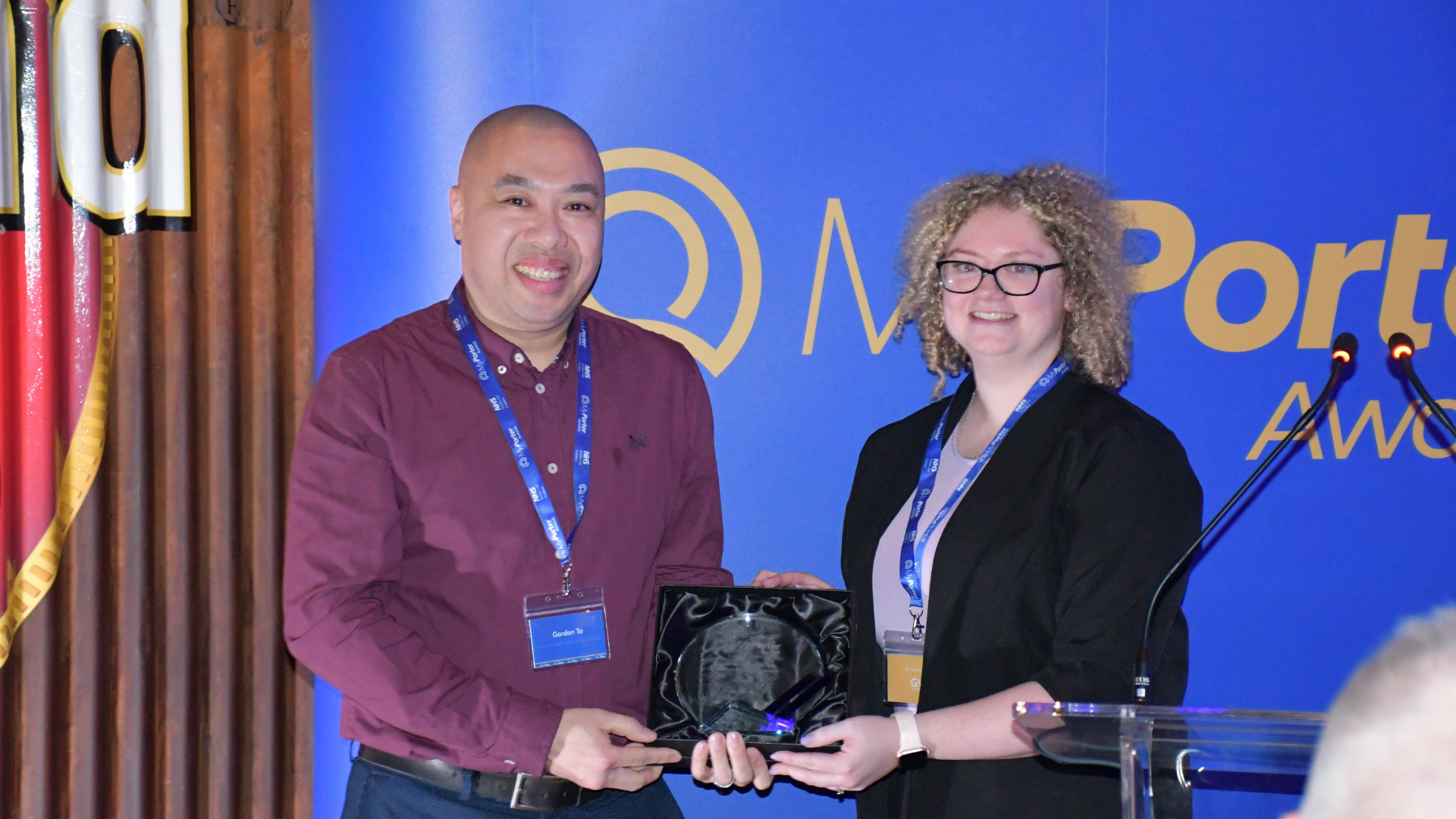
“Gordon’s approach is kind, caring, empathetic, proactive and effective. This is welcome and reassuring as Gordon undertakes routine patient transfers and other duties, but in much graver situations, two of which Gordon was an instrumental part of in the past year, he has literally been lifesaving.”
“We can’t praise Gordon’s commitment to his work, patients and colleagues highly enough, and there have been many times in which his quick-thinking and expertise has made all the difference in the face of highly stressful and pressurised situations.”
The ward staff that Gordon supports see him as an essential member of their team, always there to help them when they are under pressure or short staffed. We are so incredibly proud of him for this much-deserved award.”
Gordon said: “I couldn’t believe it when I got the call. Before becoming a porter I was a healthcare assistant, and my partner suggested I give portering a go. I love my job and work in a team that is great and full of support. This award means a lot to me and I feel thankful to have been recognised in this way.”
Following the awards ceremony Gordon was interviewed by Kay Burley on Sky News.
Two other porters from UHD also received award nominations. Joe Diffey was shortlisted for newcomer of the year, and Vaughn McIvor was a finalist for the Dennis Southern lifetime achievement award.
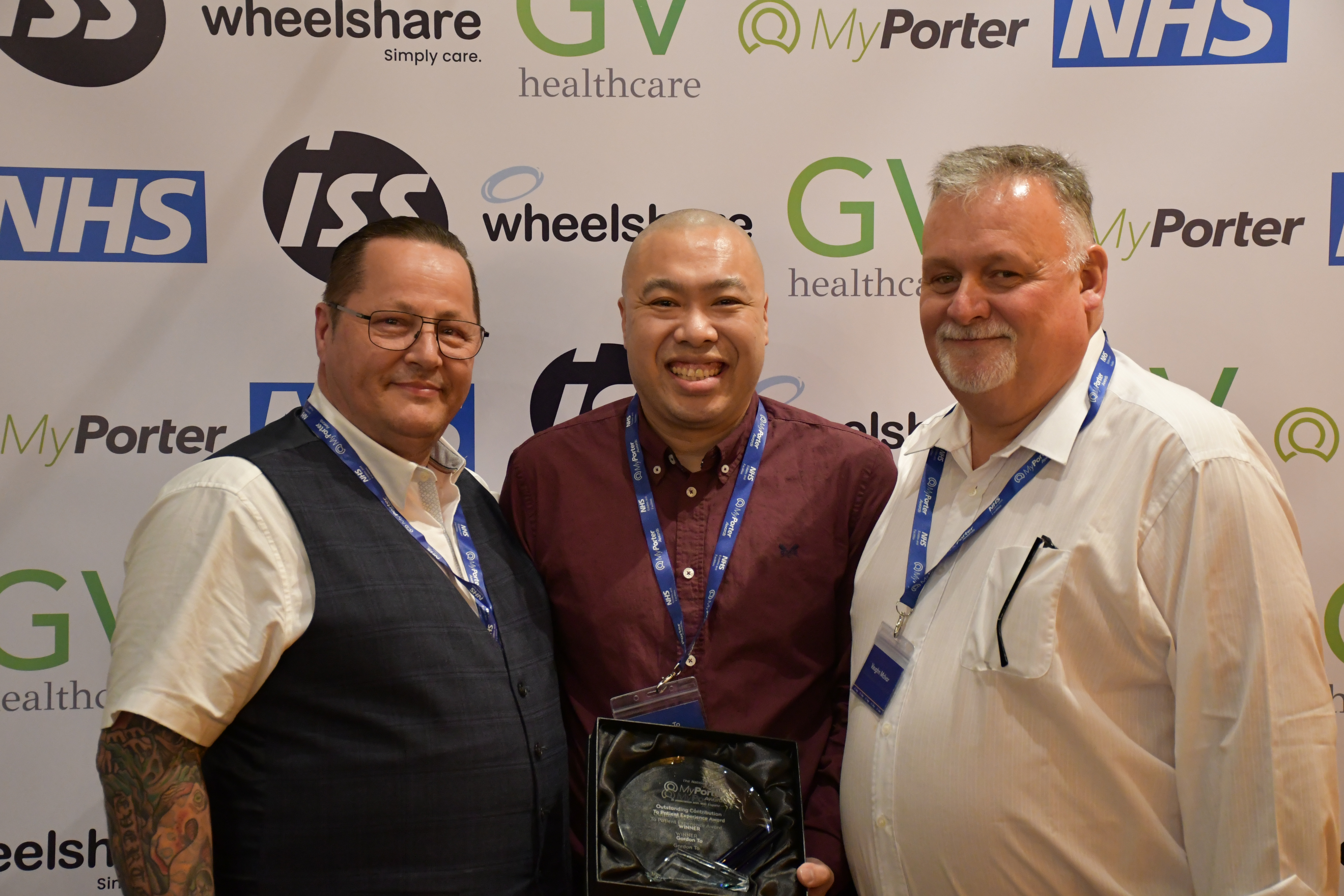
'Double joy' for UHD cancer teams
In a month of double joy, both haematology departments at University Hospitals Dorset have earned the prestigious Myeloma UK accreditation.
The haematology team at Poole Hospital was presented with the Myeloma UK Clinical Service Excellence Programme (CSEP) Award by patient, Justin Coldstream, at a special event this month (5 March), in recognition of its outstanding care and dedication to patients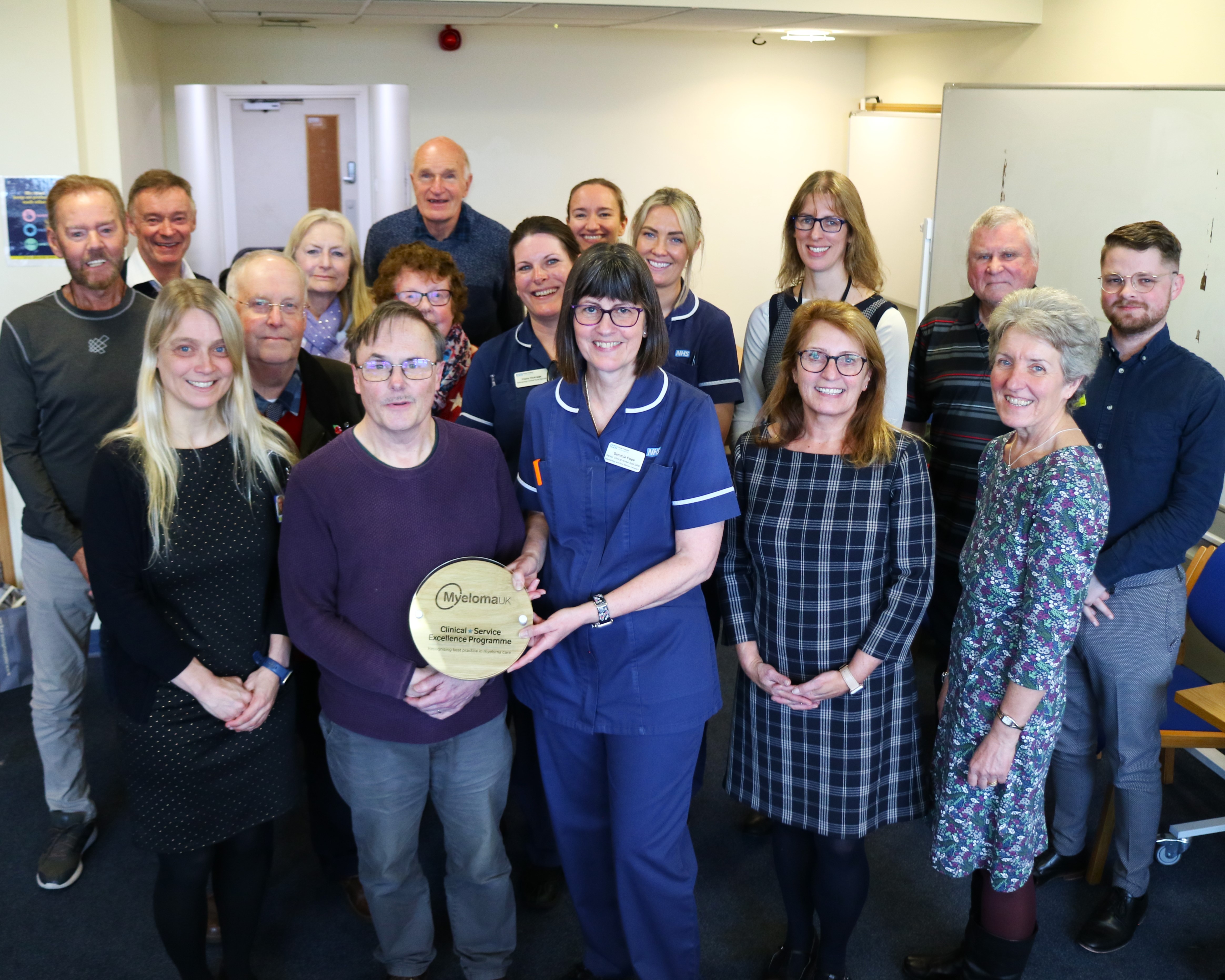 with myeloma, an incurable blood cancer which claims the lives of 3,000 people in the UK each year.
with myeloma, an incurable blood cancer which claims the lives of 3,000 people in the UK each year.
This is the second time Poole Hospital has received the award, which is only handed to a select few hospitals every four years. Staff were praised for their efforts to improve patients’ quality of life and eagerness to adapt and listen to their needs.
The accolade, awarded by blood cancer charity Myeloma UK, recognises hospitals’ commitment to raising the bar for treatment and providing compassionate care.
Madeleine Hardy, lead haematology clinical nurse specialist at Poole Hospital, said: “We are delighted to receive the Myeloma UK Excellence Award and feel this is a great testimony to the dedication and hard work by our incredible myeloma team here in Poole who deliver high-quality care every day.
“Of course, our inspiring patients are at the heart of what we do and it is wonderful that some of them attended for the presentation today. We will continue to drive high standards of care and build on this success going forward.”
Myeloma is especially hard to spot as the symptoms are often vague and dismissed as ageing or other minor conditions.
By the time many patients are diagnosed their cancer has often advanced and they require urgent treatment. This can significantly impact their chances of survival and quality of life.
Rhys Owens, clinical practice services senior projects officer at Myeloma UK, said: “Myeloma is a challenging cancer which keeps coming back and can be really difficult to cope with both physically and mentally, so we were hugely impressed with the hospital’s efforts to make patients’ lives that little bit easier.
“People living further afield have the option to be treated from the comfort of their own home thanks to the excellent community oncology nursing team.
“Staff work closely with a range of local services to give patients access to counselling and complementary therapies, including reiki and aromatherapy, and help them through the rollercoaster of cancer treatment.
“The dedicated haematology coffee club also provides patients with a safe space to share their experiences with others affected by myeloma and blood cancer.”
Justin Coldstream, is a father-of-three from Parkstone, and was diagnosed with myeloma in 2016 after months of inexplicable and “horrible” symptoms - he was 56 years old.
By the time his cancer was caught he had holes, known as lesions, in his bones and soft tissue.
Now in remission for the first time, he’s thanked the team at Poole Hospital for supporting him through years of intensive treatment.
“The team have become firm friends on this seven-year long journey,” said the 63-year-old. “I love the way the haematology department stays with you and encourages you all the way through. They’re always there. A lot of people think the world of Poole haematology and I’m one of them.
“You can actually just talk to them as friends – you don’t have to talk about myeloma. If you have issues in your life you can talk around them, you don’t have to stick to medical things. It’s quite nice to feel that they’ve got time for that. It’s much appreciated.”
Myeloma occurs in the bone marrow and currently affects over 24,000 people in the UK.
It is a relapsing-remitting cancer, meaning that although many patients will experience periods of remission following treatment, the disease will inevitably return.
More than half of patients face a wait of over five months to receive the right diagnosis and around a third are diagnosed through A&E.
While it is incurable, myeloma is treatable in the majority of cases.
Treatment is aimed at controlling the disease, relieving the complications and symptoms it causes, and extending and improving patients’ quality of life.
Justin knew something was wrong when he started experiencing “horrible symptoms”, including a “dreadful cold” that led to nosebleeds and muscle pain.
Things finally came to a head when he had a bad reaction to a flu jab.
“I had all sorts of horrible symptoms, which nobody really diagnosed because picking up myeloma is difficult,” said Justin, a member of St Luke’s in Parkstone. “The clincher was that I was getting some really bad respiratory infections. In the autumn I got the most dreadful cold with aching muscles, nosebleeds. I decided to go for a flu jab and I reacted very badly to it. It was a strange feeling that I can’t really explain but my immune system was not doing what it was supposed to do. They picked up the myeloma from that. It was quite aggressive – although they didn’t know that at the time.”
He added: “I hadn’t heard of myeloma. I had to absorb the fact that it was incurable but treatable and very individual. And, a few months down the line, that I had a bad case of it and wasn’t likely to do very well.
“But I started with a positive outlook. It’s been amazing how we, as a family, have kept going through it all. I felt that God and faith would carry me through – that got me through the first few months.”
Although Justin didn’t respond well to his initial and second round treatment, things steadily improved after his third, and he is now in remission for the first time since 2016.
“The induction treatment didn’t really work - the haematology department were really scratching their heads about my case and wondering what to do about me and they rang me while I was on holiday, which was very touching, to tell me they had this treatment lined up you might like to have.”
Although the treatment, DT-PACE, didn’t work as well as the team had hoped, Justin was extremely touched by staff’s unflagging support and determination to keep his cancer at bay.
“It was the thought that counted,” he said. “It was nice to feel that they actually care and take it to heart. I really do feel that. Then I went on what is known as third line treatment and amazingly it turned round and, having faltered, I started to respond to the treatment.”
Crucially, the team have helped him regain a much-needed sense of normality.
“I don’t treat life as though it’s about to end,” he went on. “I do have strong faith so when the time does come, I know where I’m going, which helps. I just try and do what I feel I should do as wholeheartedly as I can.
“It took six and a half years but I am now in remission for the first time. To be on the bad end of things and then to find you’re in remission, I think that’s amazing.”
Royal Bournemouth haematology team and award
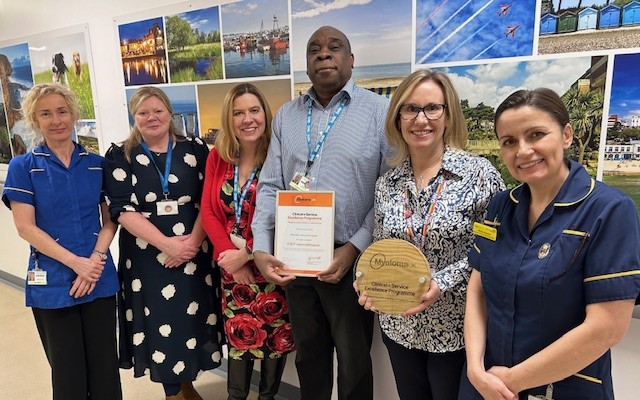
Smoking in pregnancy support group
University Hospital Dorset (UHD) has launched a peer support group for smokers who are either currently pregnant or have recently given birth and wish to quit.
The sessions will aim to be a safe space for those who are thinking of quitting, or who are already on their journey of stopping smoking, with public health midwives from St Mary’s Maternity Unit at Poole Hospital on hand to provide support and advice.

Beth Fletcher is one of the midwives involved with the service. She said: "We’re proud to be able to provide this new support group which has been set up to give pregnant or new parents the opportunity to share their experiences of their quit journeys, and support each other in being smoke free.”
“Anyone who is thinking of quitting, is currently quitting, or has quit in pregnancy, is welcome to join and share their story. We’ll also help people you live with to help quit, so bring them along too. You are far more likely to quit with support, and our peer support group will provide that."
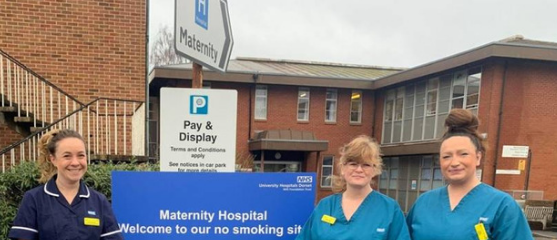
Sessions will take place every Friday at 10:30am, starting from 8 March, at Canford Heath Outreach Centre, Culliford Cres, Poole, BH17 9DW.









